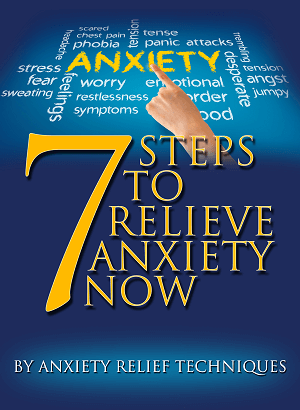What is generalized anxiety disorder or GAD and how do you treat it? To begin with an anxiety disorder is an ongoing issue that affects you in a variety of ways, lowering your quality of life and impacting your personal as well as your professional life. You may be diagnosed with an anxiety disorder as a child or you may not develop any anxiety symptoms of this condition until much later in life. There are many different types of anxiety disorders currently diagnosed, including obsessive-compulsive disorder, panic disorders and social anxiety and phobias.
Generalized Anxiety Disorder Symptoms
Generalized anxiety disorder is characterized by constant worry about many issues. People with this condition might feel on edge regularly, and may have trouble sleeping because of their worries. Worries can also lead to other physical symptoms, including stomach disorders like nausea and diarrhea. People with generalized anxiety disorder may also experience regular muscle tension that can lead to back and neck pain and frequent headaches. Stress symptoms are also a big part of the disorder, as stress and worry go hand in hand.
General Anxiety Disorder Causes
At this time, there is no known cause for generalized anxiety disorder. With many patients seeking medications for treatment of generalized anxiety disorder, most medical professionals believe that brain chemicals like serotonin and dopamine may play a role in its onset. Because the disorder tends to run in families, experts are considering genetics and some environmental factors as contributors to generalized anxiety disorder. Some people that endure particularly stressful events in life may also go on to develop generalized anxiety disorder.
While the cause is still uncertain, there are now treatment options that can effectively control the symptoms so patients can enjoy a higher quality of life. Most doctors will begin by prescribing a medication that is similar to the ones used to effectively treat other psychological disorders like depression. These medications include selective serotonin reuptake inhibitors (SSRIs) like Prozac and Paxil, which are effectively used for this purpose. However, if SSRIs do not do the trick for some patients, doctors have a number of other medications they can try as well.

Subscribe to Receive This Free Guide!
Receive my newsletter with my own anxiety relief tips and instant access to this eBook as a gift! I've learned how to manage my own anxiety issues...and I share what I do in my newsletter! I hope you'll join me!
We take your privacy seriously and we do not spam! You can unsubscribe at anytime! See our privacy policy here.
Natural Treatment
There is also an all natural anxiety and panic attack treatment, to help with the cortisol, dompamine and seratonin levels, called Provanax. There are no side effects compared to some prescription medications. (Read my Provanax review, for ingredients, no side-effects and where to buy.)
Many anxiety patients find that the medications work best when they are combined with regular psychotherapy sessions. Psychotherapy helps patients learn to control the thought processes that lead to anxiety and fear to reduce anxiety symptoms. Psychotherapy is usually guided by a professional like a psychotherapist or psychiatrist who is experienced in treating anxiety disorders. When counseling sessions are combined with the right medications, the results are usually positive and satisfactory for the patient.
Affiliate Disclosure
My website contains affiliate links, which means if you purchase any products mentioned in my articles, I may receive a commission. If you do, thank you!







Speak Your Mind